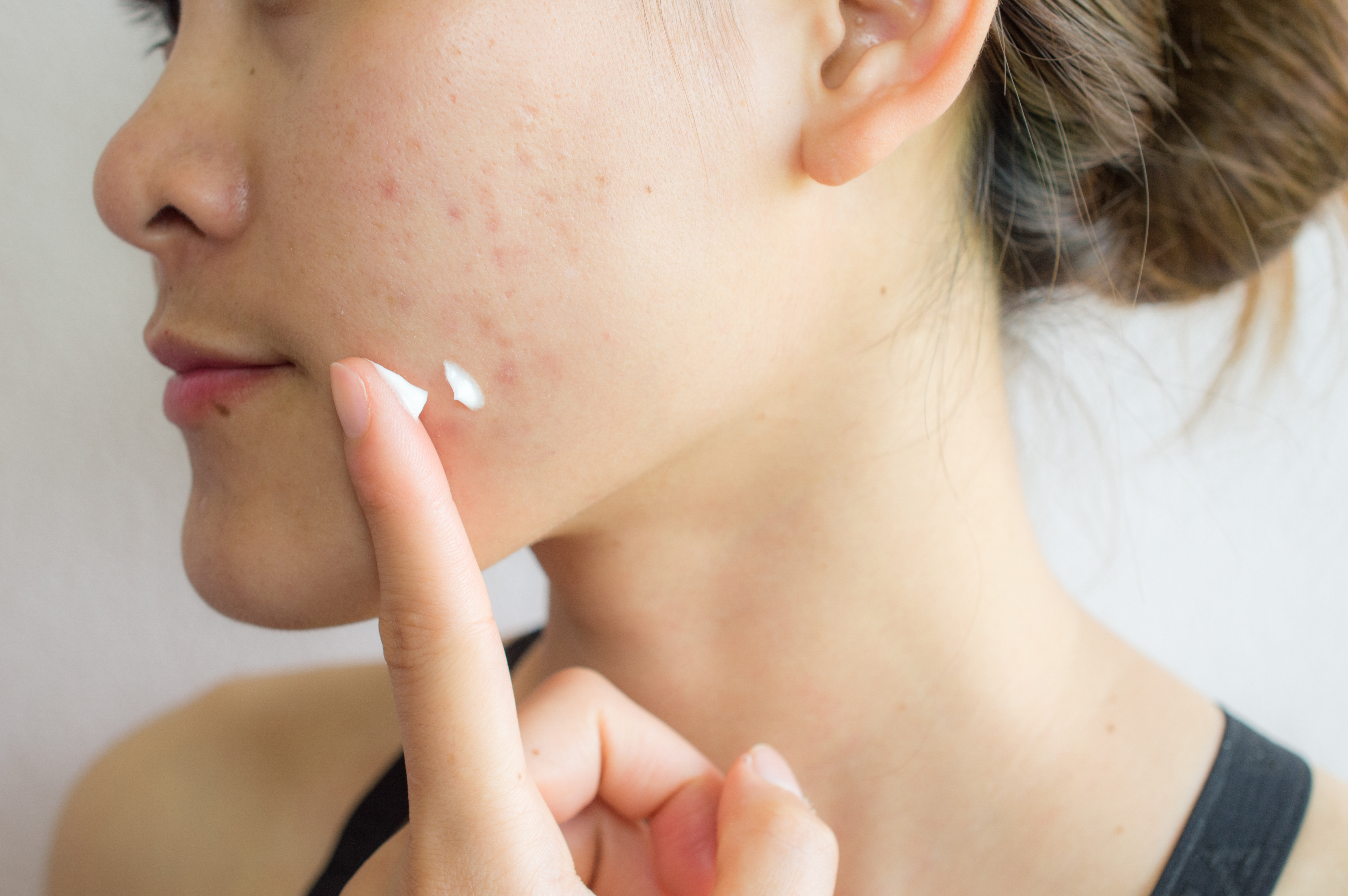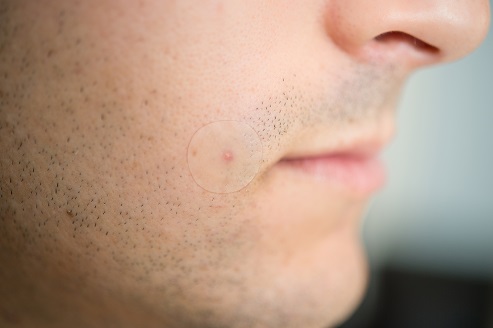
- 6 Jan, 2023
- /
- Category:
- Consumer Wellness
Understanding and Treating Mild Acne with Skin Care Topicals and Hydrocolloid Adhesive Products
Acne is a skin condition most people experience at some point in their lifetime. It’s estimated that more than 85% of teenagers experience this this common skin problem.[1] While it’s not life threatening, it certainly can affect one’s self confidence and hinder quality of life. And while acne becomes less common in adulthood, it persists in nearly half of affected people into their twenties and thirties, and even in a smaller group into their forties.[2]
So just how does this common, burdensome skin condition occur? It helps to understand the inner workings of our sebaceous glands. Sebaceous or “oil” glands secrete an oily substance – known as sebum – to lubricate skin and hair through skin pores.[3] Sebum – made of different fatty acids – mixes with bacteria and dead skin cells and forms a plug that clogs pores, resulting in inflammation of the skin. The resulting inflamed white pus and redness that we’re all familiar with seeing is mild acne and it develops as the immune system attempts to kill the overpopulation of bacteria in the pore and heal the skin tissue.
Treatment and Prevention
There are so many different types of treatment options for acne that it can sometimes be overwhelming to choose which product is best. For those with severe acne conditions, antibiotics and retinoids are available that can be applied to the skin. For singular or periodic breakouts, hydrocolloid patches and dots are alternatives to drug treatment.
Topical treatments that consumers can apply directly to the affected areas on their skin commonly include benzoyl peroxide and salicylic acid as active ingredients. While these ingredients can be effective for many people, it’s important to note that the skin type – whether it be oily or dry – and the location of breakouts plays a big role in determining dosage and application regimen. The pros and cons of strong topical products should be considered against skin types and severity of outbreaks as well. Prescription topical retinoids specifically can be very effective for treating acne but can cause sunlight sensitivity and skin drying or peeling, making guidance from a dermatologist essential.[3]
In addition to topical formulations, long-wear hydrocolloid products are an effective option. When applied directly to the acne blemish, the hydrocolloid adhesive can help protect from external contaminants; promote faster healing by removing the oil and or pus than traditional bandages; and provide increased comfort and cushioning.
Learn more in our infographic
The good news for many consumers is that their mild cases of acne are treatable with common, over the counter topical formulations and wellness product such as hydrocolloid applications. Scapa Healthcare is armed with the expertise and capabilities to empower you with the right formulations and applications for the specific needs of your consumers, whether it be acne or other skin conditions. Learn more about our advanced formulation capabilities and reach out today for more information.
[1]“Teens and Acne,” Debra Fulghum Bruce, PhD, medically reviewed by Stephanie S. Gardner, MD, WebMD, November 12, 2020
Volume 7, January 2016, Pages 13-25
[2]“Emerging Issues in Adult Female Acne,” Joshua A. Zeichner, MD; Hillary E. Baldwin, MD; Fran E. Cook-Bolden, MD; Lawrence F. Eichenfield, MD; Sheila F. Friedlander, MD; and David A. Rodriguez, MD, The Journal of Clinical and Aesthetic Dermatology, Volume 10.1, January 2017, Pages 37-46
[3]“Acne,” Mayo Clinic Staff, Mayo Clinic, May 25, 2022

